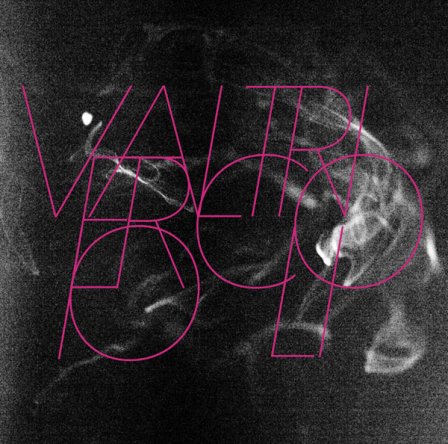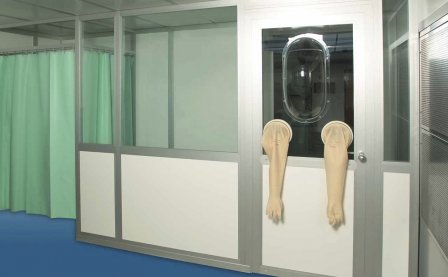On his second solo album and debut full-length for PAN, Valerio Tricoli conjures an atmospheric tension that’s deeply unsettling. The horror and the precision he presents hang in the air, like a piercing scream behind soundproof doors that you can feel for hours after you’ve entered a now abandoned room. Miseri Lares (or Wretched House) isn’t bound to its 77-minute duration; instead, it opens a long-lasting, claustrophobic headspace that’s alive with haunted objects. It’s everything you fear, but that you can’t do without — a conniving Stockholm syndrome for the soul.
For Tricoli, environment is essential. His technical setup alters drastically depending on the space he performs in, which essentially has an impact on the catalog of sounds he works with and the manner in which they are processed. One of the curious aspects of Miseri Lares is that clipped aural fragments become the driving force in shaping that milieu. Although the source recordings are often free and accidental, Tricoli spends a great deal of time working on them afterward to achieve his desired effect: as he told addlimb, “the raw material is improvised, with a lot of post-production techniques, overdubs and experiments with the studio itself.” It’s because of these compositional accomplishments — capturing sound in such a precise way before deforming and then arranging it with a seductive mastery — that Tricoli is a pioneer in his field.
As an artist, as a sculptor of sound, Tricoli demonstrates an ear for creating moments of surprise and anxiety, which has brought him to great acclaim in what PAN describes as “the international experimental live circuit.” Although his approach might appear distinct and personal, the Sicily-born artist has recently focused his recorded output on collaborations. In 2010, he worked with Antoine Chessex on Coi Tormenti before following that up with Thomas Ankersmit on Forma II, which came a year later. Both recordings illustrate Tricoli’s gift at markedly altering the mood of a piece by means of the slightest intervention, a complicated and refined skill that has been executed perfectly on this latest release.
 (Photo: Susanna Bolle)
(Photo: Susanna Bolle)
The playback experience is overwhelming, with a continual dread of being caught off-guard by Tricoli’s fragmented narrative. Even though the album is made up of gloom-ridden, ambient tones that emerge through looping, magnetic tape reels, the recordings are spliced with menacing voices and butchered poetry. There are bangs, crashes, and knocks, all acoustic effects brought to life as they circulate between spools. But it’s the use of mundane, inanimate objects for instrumentation that gives each sound its clout, a gripping impression that presses you ever closer to an imagined line of fire.
Despite the concrète credentials harbored within, Miseri Lares is also a profound musical experience in a more conventional sense. Each track is driven by an atonal whir or a hushed static that fills the objects exposed here with a haunting preponderance. The shock and astonishment they induce come from the percussion, the rhythm, and even the melody that stems from each one of these exquisitely framed soundscapes, exposing drama and elegance comparable to an intricate orchestral symphony. The patient stirs of “Error” are delicately explored by scratches and bass: fingernails clawing through reams of tape. The metallic echoes and stretching of coiled springs on “In The Eye Of The Cyclone” brilliantly showcase Tricoli’s ability to construct a specific, sinister disposition. Where other artists might exemplify an enthusiasm for reimagining day-to-day objects through a virtual lens, Tricoli drags his audience back into a reality that’s brittle, potent, and a reflection of the way he operates his machines.
I first saw Tricoli perform at Café Oto with Rashad Becker — who mastered this LP — and Ashley Paul. The peculiar assembly of apparatus that Tricoli had in front of him was not only responsible for bringing his ideas to life, but also an integral part of his performance. His movements were quick and sharp as he tinkered with his gear, so agile were his inflections that his body appeared an extension of the machines he’d brought along that evening. He breathed with the music, which engulfed him in the same way that this album engulfs its listeners — for instance, with the rushes of steam and collapse of mechanical components on “Das Schräg Haus.” The ritual of his live performance is ingrained within the sounds he presents here, and the results make for a fascinating connection between bodily movement, equipment, and the places used to capture the source material.
As a breathtaking whole, the album depicts a space that’s at once familiar and ethereal. Each rap at the door, each muffled command is brimming with character as an illustration of pitch black corridors, creaking staircases, and derelict dining rooms. Something terrible has happened in this setting, but the only evidence lies in the physical objects that reside here. They tell a story assembled subjectively through the mind of the listener. Demented whispers, citations from Dante, and multilingual dialogues are neither obvious nor over dramatized; Tricoli ensures that the experience, for which the listener is ultimately accountable, remains spectacularly real.
Miseri Lares invites its audience to explore each sonic crevice on their own terms. The messages within are not dictated; they are disjointed and secretive, pointing to clues but never revealing their true meaning. In this respect, the album is exhausting; the listener becomes enticed by their own fascination, which consumes their energy while altering the relationships they form with each resonance. Upon returning to the album, each clue seems to shift, to mutate into a cold and vacant mirage. Nothing here is what it seems, except for Tricoli’s dexterity. To appreciate these sensations and to dwell in the pleasure that they bring is almost as disturbing as the sounds themselves. The thought of returning to Miseri Lares is terrifying, but it’s also inevitable, because it never really lets you go.
More about: Valerio Tricoli




